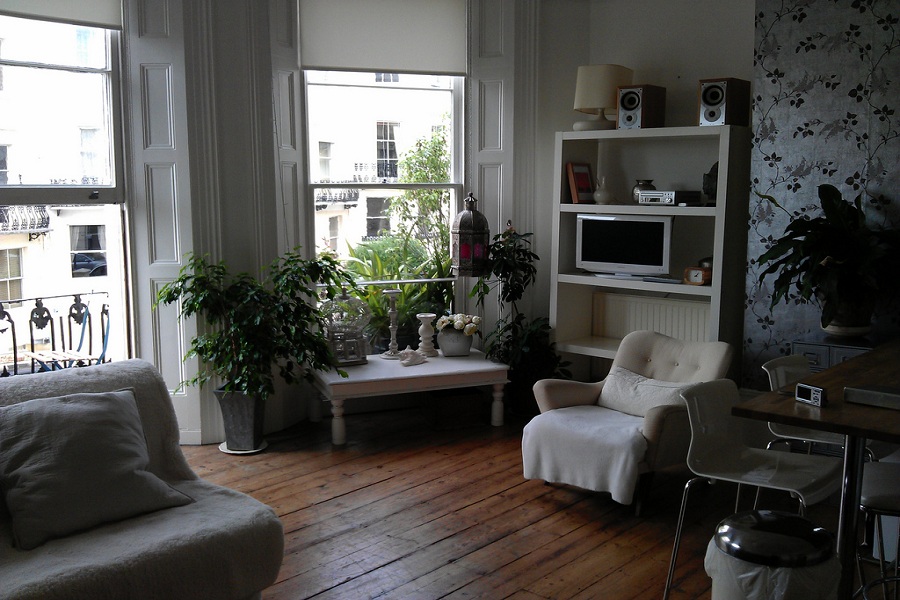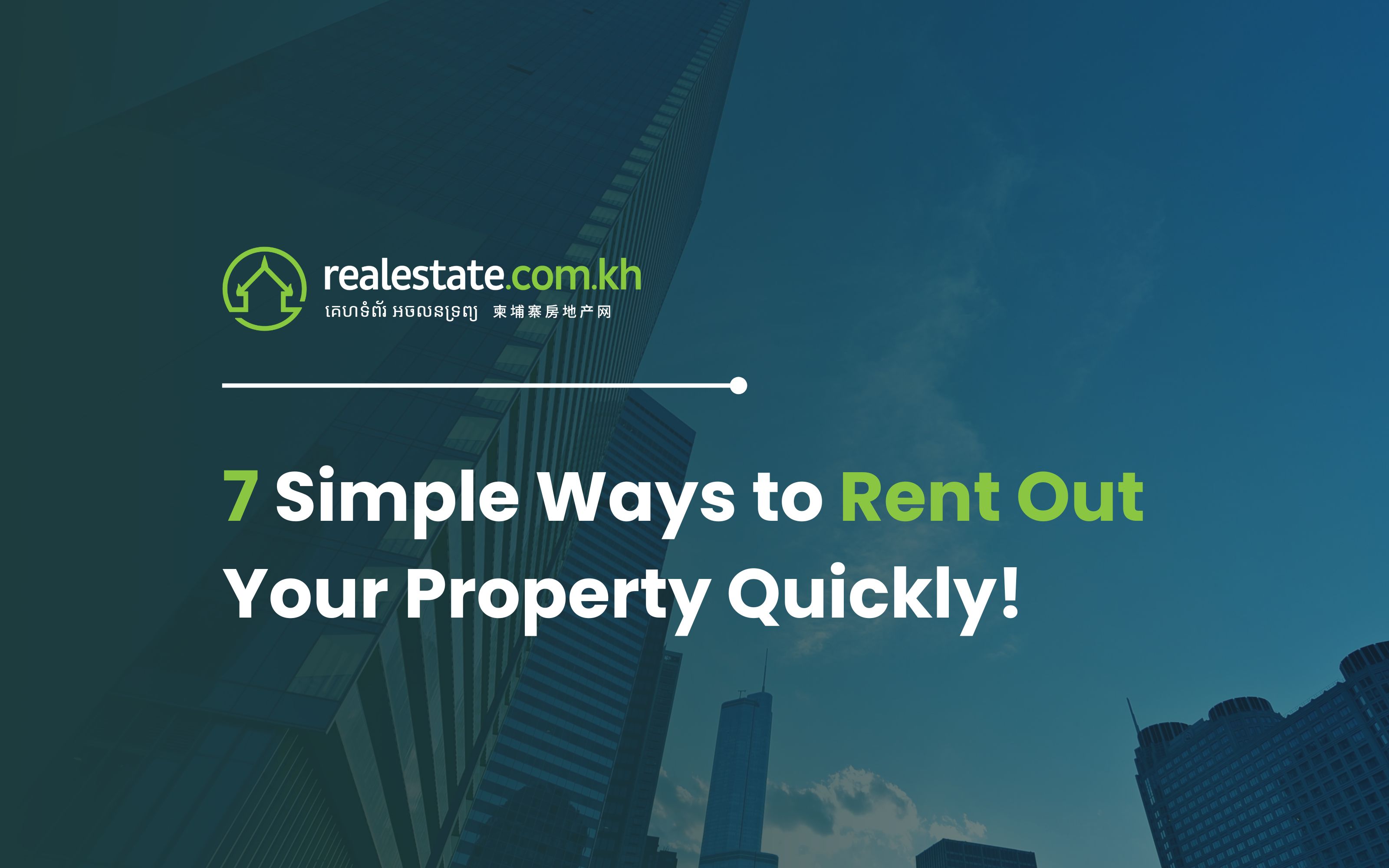![]()

There are plenty of developments being built in and around Phnom Penh, and among these are pretty good investment opportunities. Along with the many attractive qualities of these new projects, is the promise of guaranteed rental returns that can go up to about 20% during the first two to five years after purchase. But experts such as the CEO of Huttons CPL, Sharon Liew, explains that “in general, anything higher than 20 per cent is likely too good to be true.”
However, it is more than possible to find lower and more realistic guaranteed rental returns on the market right now. So, if you’re thinking of buying a space to rent out for future investment return, what do you need to consider first and how exactly do you calculate whether or not the promised guaranteed rental return is true?
What are the Considerations for Return of Investment?
Developers will promise investors a lot of things. But promises are just that if you’re not careful. So, here are a few things that you can do to protect your investment from going down the drain.
Research - The first thing you want to do before talking to the developers and property managers is to make sure that the guaranteed rental return is consistent with market conditions. So, location, pricing, condition, and real estate forecasts will factor into the equation. If there’s an expected increase in demand in the future in a specific area, then that might be a good investment. But if a developer is promising a high guaranteed rental return and something about the data seems odd or off, look into it further. It’s also advised to follow trends that have been proven rather than influxes.
Get a contract - When you’re finally sure that the guaranteed rental return is plausible and you sit down with an agent, a developer, or a property management representative,ask to see a draft of the contract. Check all the documentation and see if there is any mention of the guaranteed rental return. Otherwise, you don’t have anything to hold them accountable with. If you can, get a financial advisor and a legal advisor to look at all the paperwork.
Ask - Make sure to also check the capability of the property management firm. If it’s possible, ask them about their financial estimates and plans for the property. Oftentimes, the first few years of management is great until they lose sight of their finances and the quality deteriorates. Making sure that they have a plan for the different scenarios that may play out means they did their independent study as well.
How do I Compute for Return of Investment?
Now that you’ve placed everything in order, it’s time to actually compute your actual return of investment. But how? There are two basic ways to do that, and it actually depends on whether you are planning to pay in cash or through a financing scheme.
How do I Find Out Return of Investment if I Pay in Cash?
This is probably one of the easiest ways to compute for return on rental investment. All you have to do is to divide the expected annual return by the original total investment. Take note that the expected annual return is the amount after tax has been deducted and the original total investment amount includes costs like remodeling.
So, for example, you buy a unit for $235,000 and decided to add certain appliances. This brings up your cost to around $245,000. If you charge your tenant $1,800 a month, you have roughly $21,600 in a year. But you have to pay a yearly real estate tax of 0.1% and a 14% rental income tax. That amounts to $3,259 which brings profit down to $18,341.
So, your Return of investment from the rental property is computed by dividing $18,341 by $245,000. That brings you to an 7.4% ROI a year.
How do I Find Out Return of Investment if I’m FInancing the Property Through a Loan?
Taking a loan or mortgage makes the process of calculating ROI more complex, but nonetheless possible. Taking the above example, assume you get the same unit. The terms of a bank state that you’re allowed a maximum loan of 70% with 8.25% a year interest rate for 20 years. Let’s say you already paid the first 30%, your total initial payment is $70,500. Let’s also assume you got $10,000 worth of appliances. Your total out-of-pocket so far is at $80,500.
Next we have to take into consideration the ongoing costs associated with the loan. You took out a 20-year loan with a fixed interest rate of 8.25%. This would mean a monthly payment of around $1,402. That’s $16,824 a year.
For loan computation assistance, you can use our Loan Calculator!
We’ll then add the same yearly tax you have to pay at around $3,259 to the $16,824 you have to pay a year. Now, assuming you’re still asking for $1,800 every month and you subtract your yearly payment amount, you will be left with around $1,517 yearly.
What’s left for us to do is to then divide the yearly profit by the original out-of-pocket costs to determine the ROI. $1,517 divided by $80,500 equal an ROI of 1.9% a year.
So, is Buying With Cash Better Than Getting a Loan for Return on Rental Investment?
There is a noticeably large difference after comparing the ROI rates using both method of payment. But choosing between the two financing options boils down to a matter of preference. If you’re in it for just the rental return, then paying in cash would make more sense. But for investors who are planning on resale in the distant future when prices have shot up but don’t mind getting rental returns in between, the second option seems like a better one.
But What If I Plan on Letting Someone Rent It Out to Own It Eventually?
If you’re planning on doing this and paydifference ing in cash, the return of investment will be just the same as when you resell. The only will be when and until when you get the returns. If you do this while you’re on mortgage, the renter will technically pay off the loan and pay you profit a month at a time.
Use our online search tool at Realestate.com.kh to help you look for good investment properties now!
Is There an Easier Way to Get a Computation?
Yes there is! If you’ve taken a loan from the bank, then your bank may have probably already gotten a valuation of the property. This means they’ve already considered all the costs, the benefits, and the risks to ensure that they’re not going to lose any money or that there is minimal risk involved. Now, maybe you want to know the inherent risks, the potential of a property, and how much you may be able to make out of it. Well, you can avail of valuation services for personal purposes too.
Not to say that the above ROI computations are not at all helpful, but valuation takes into account several things other than just tax, profit, and initial cost. It gives you a clearer picture of what you’re getting yourself into by also considering the geographic location, the nature of the property, the current usage and usability, disaster, insurance, construction quality, age of construction, approved documents from local authorities, and the maintenance of the property.
With all of this, they’re able to give you an overview of the property’s current state and of what might happen the future, in case you are planning on reselling a property or maybe even live in it. This can be an overwhelming process sometimes for investors, but since valuation services are done by experts in the field, they can tell you whether you’re making a potentially great investment or not.
There are a lot of opportunities out there to invest in Phnom Penh’s real estate, but knowing what to invest in and how to invest in them makes for a good return on rental investment. So, take a shot at it and browse through different properties now!





Comments